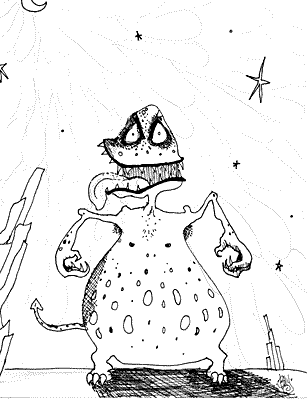All Nonfiction
- Bullying
- Books
- Academic
- Author Interviews
- Celebrity interviews
- College Articles
- College Essays
- Educator of the Year
- Heroes
- Interviews
- Memoir
- Personal Experience
- Sports
- Travel & Culture
All Opinions
- Bullying
- Current Events / Politics
- Discrimination
- Drugs / Alcohol / Smoking
- Entertainment / Celebrities
- Environment
- Love / Relationships
- Movies / Music / TV
- Pop Culture / Trends
- School / College
- Social Issues / Civics
- Spirituality / Religion
- Sports / Hobbies
All Hot Topics
- Bullying
- Community Service
- Environment
- Health
- Letters to the Editor
- Pride & Prejudice
- What Matters
- Back
Summer Guide
- Program Links
- Program Reviews
- Back
College Guide
- College Links
- College Reviews
- College Essays
- College Articles
- Back
Ender's Game
How Science Fiction is Brainwashing its Audience
Destroying aliens in a fictional world is never real, but we may think it is.
Science fiction films - especially those incited by new or anticipated technology - capitalize on the desire of readers of all ages to experience the ideas others have about the possibilities of applied science. The most prevalent example of this desire is to be found in video games. Contrary to analysts’ projections, they are being sold more and more as consumers realize their ability to experience engrossing circumstances and the effects of their choices without being penalized in reality. This is quite appealing because many people are afraid to take risks because of the danger involved, but they can safely make any choice as capriciously as they like in a virtual world. Doesn’t sound very risky to me. Still, science fiction provides such a possibility for the mind, feeding consumers’ imaginations. However, this practice blurs the line between fiction and reality.
Orson Scott Card’s Ender’s Game is a prime example of this; it engages the reader’s imagination and creates intrigue on the subject of video games, allowing viewers to fantasize about the possibilities in such a world. They can simultaneously see the choices made by the characters in their own games In the story, Ender Wiggin plays a video game, called The Giant’s Drink, to train him to defeat aliens. In the game, he is given many choices but can never win. This leads him to experiment and discover new outcomes, but it also has a negative effect. Ender becomes mentally stressed and forgets that the game is unimportant in reality. His psychological degradation seems somewhat exaggerated, but this is what makes it relatable and therefore exciting for consumers - Certainly he is not the only one who has spent sleepless nights trying to reach the next level of a video game. He eventually kills millions of aliens by destroying a planet in what he thinks is a game. This is similar to what we all do with video games: becoming so engrossed as to forget that they are just games.
Ender’s Game also contributes to a craze about aliens. Children love imagining them, and adults are curious about new discoveries of possible alien life. Recent findings by NASA on Mars through craft such as the Curiosity have undoubtedly spawned curiosity about the possibility of habitable conditions. If they ever existed, could aliens possibly live there? People love to hear about what aliens may look like, what technology they have, and countless other details. Card provides only slightly satiating answers: a stereotypical insect-like alien with guns and spaceships. Interesting. Ender’s Game does, however, present the possibility of aliens that are kind - but no one figures this out until the end. At first, they are presented as wicked and intelligent beings that mount a huge invasion, although it is somehow overcome before the story begins.
Ender’s Game is the epitome of an engrossing science fiction novel as far as technological developments go, and although it does not provide the most original antagonists, it is overall quite creative. It gives interesting ideas to the viewer about video games, while showing the effect of becoming overly enthralled (Ender is quite traumatized by the end of the story). And those watching are temporarily so absorbed that they themselves may forget whether or not Ender Wiggin’s game is real.

Similar Articles
JOIN THE DISCUSSION
This article has 0 comments.
